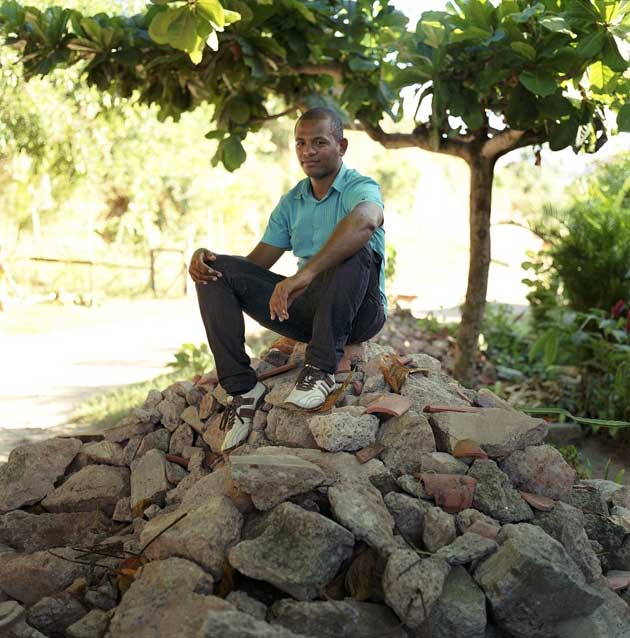First Person: 'I help women escape the favelas'
Luciano Rodrigues Dos Santos, 27

I grew up in a shantytown on the outskirts of Salvador, north-east Brazil, one of eight children. We shared three rooms and money was scarce, forcing my brothers, sister and I to sell snacks on the beach to survive. I was seven when I started selling peanuts before moving on to barbecue cheese because it was more lucrative. Every day for six years was the same. School at 7am, eat a lunch of rice and beans at noon and then hit the beach, carrying a 10kg barbecue bucket of burning coals in the 30-degree heat which would blister my hands.
I never thought of the future – at least I could practise English with foreigners: my hope was that one day I might become a tour guide. Then, aged 13, I met two Canadian tourists who worked for the charity Street Angels. It changed my life. The charity sponsored me $30 a month, helping to buy food and school uniforms for our family. Four years later, in September 2001, they funded me to go to college to study English in Vancouver. I was excited but terrified; I'd never even been outside Salvador, let alone Brazil.
I loved Canada. Every day was exciting, and I gradually picked up the language, getting people to help me by just smiling when I didn't understand something. I missed my family, of course. In my country, everyone is friendly and invites you to parties, but Canadians are more reserved: it takes a long time to even be invited to tea. I studied there for three years, and fell in love with the country – and eating sushi. When my visa ran out in September 2004, I returned to Brazil to work for a Street Angels project in a favela, Don Aurora, near my home, where I helped set up a medical centre.
In December 2007, an English charity volunteer introduced me to Oliver Wayman and Cameron Saul, who run the UK charity Bottletop. They raise funds through fashion and music initiatives to help local communities, and fund youth sex- education projects to help prevent the spread of HIV and sexual disease. They were looking for local people to make handbags made of salvaged ring pulls from drinks cans, similar to designs being sold in local markets.
It sounded a great idea as many of the women in Don Aurora have no education and no work, or are forced to travel to do housekeeping. It means they can't keep an eye on their children who are at risk of being lured to run drugs for local gangs.
We started off with seven women. Now demand is high enough that there are 27 women, who can make 750 Real (£250) a month to buy food and clothing. I used to think dreaming of a future was a luxury only afforded the rich. Bottletop has made that a reality for so many. I'm now studying for a degree while running the co-op, and it feels good to be helping others.
Visit bottletop.org, or to buy a Fenchurch Loves Bottletop handbag from £50, visit fenchurch.com/bottletop
Subscribe to Independent Premium to bookmark this article
Want to bookmark your favourite articles and stories to read or reference later? Start your Independent Premium subscription today.

Join our commenting forum
Join thought-provoking conversations, follow other Independent readers and see their replies